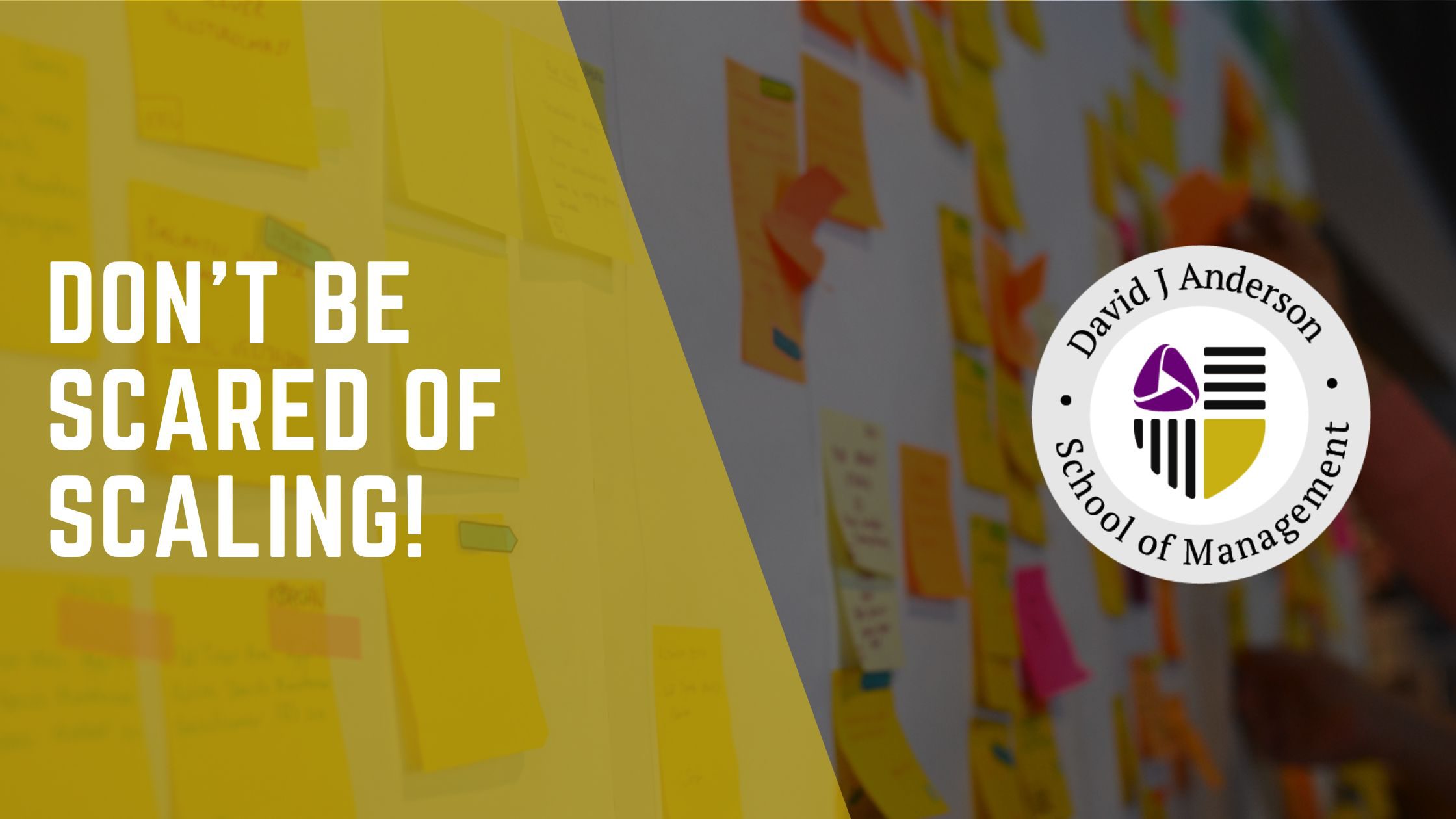Getting to "pull" at enterprise level
On my recent trip to China, I visited several companies with vast and impressive Kanban initiatives. In this 3-part blog series, I will share my realizations about the value of Kanban and the potential to do more, even at enterprise scale.
Kanban is Ubiquitous!
It’s time to declare victory with Kanban!
The use of Kanban has become commonplace in professional services work environments across the globe. People have stopped questioning whether they should adopt Kanban or whether it is a valid technique or not. They are simply doing it and finding it useful. It’s adding value in their lives and making work easier and more fulfilling.
Three large Chinese companies have Kanban implementations of 3000 to 5000 people.
One reports productivity improvements of 10-50%, averaging over 25%. The introduction of Kanban at scale in their organization, across more than 10 product units, has produced productivity gains equivalent to hiring 1250 additional engineering staff.
The firm now intends to scale the success of this pilot to around 100,000 workers. In an era when there is a “war for talent” and companies spend inordinate sums to attract the best young workers, Kanban is enabling firms to avoid expensive additional recruitment. Ironically perhaps, as one of the key motivations for executives pushing adoption of Kanban is that it will make their workplace more attractive to the best talent – a more collaborative, fast-paced, transparent, high trust culture, that produces higher quality products and delights customers with better, faster service. Implementing Kanban dramatically reduces the need to find that additional talent! So, while Kanban adoption makes a workplace more attractive for new employees, it also dramatically reduces the pressure on their employer to expand the workforce.
Kanban initiatives seem to do no harm and deliver on the promise of “start with what you do now” improvement with minimal resistance to adoption.
Sure, there are the stories of the aborted implementations, early failures, and even legends like the VP of the PMO at a SaaS software vendor in California who famously ripped the Portfolio Kanban board off the wall and trashed it one morning – greater visibility it seems isn’t for everyone! However, given the scale and ubiquity of adoption around the world, there are remarkably few complaints. No one reports, “installing Kanban was brutal”, or “Kanban caused us to churn 20-40% of our staff” as has been seen with some recent management fads or established Agile software development methods.
There is considerable evidence that Kanban costs a lot less too.
At one Chinese firm, the cost of implementing Kanban is less than 1% of implementing the Agile software development method, Scrum, when measured on a cost per person basis.
Costs for adopting Kanban appear to be in the range of 1/10th to 1/30th the cost of adopting alternative modern management techniques.
The savings appear to come from the greatly reduced need for coaching. When adoption meets with minimal resistance, the need for coaching is reduced. When adoption is rooted in the principle that you “start with what you do now” then the need for coaching is reduced. Compared with more traditional approaches to change management, the evolutionary approach of Kanban produces dramatic savings.
Meanwhile, the benefits are huge!
The return on investment in large scale Kanban adoption at two Chinese firms is measured in the range of 300-400 to 1 or 30,000-40,000%. The firm taking their 5000-person pilot up to 100,000 people expects to improve these ROI numbers as they achieve an economy of scale in the rollout across the whole firm.
Adopting Kanban at scale across entire businesses has become such a complete “no-brainer” of an executive decision that we expect to see a tornado of wider adoption globally over the coming years.
So, we should declare victory – Kanban provides massive ROI for professional services businesses with almost no downside. It is a truly “safe to fail”, low-risk approach to improving business performance! We can all pat ourselves on the back and move on!
Or should we?
Actually, It’s Not Really Kanban At All…
While the achievements we’ve seen globally with Kanban adoption are tangible and significant and we should be rightly proud of them and recognize that Kanban has changed the world, the reality is that almost all of these implementations fail to fully achieve the core essence of the method first implemented in Microsoft’s IT department in 2005.
They fail to implement a true “pull” system, and fail to achieve the full benefits we might expect from Kanban. Sure, 10-50% productivity improvement at a scale of 5000 people is to be congratulated but when organizations fully embrace Kanban they achieve 100-700% productivity gains, dropping delivery times by greater than 90% in many cases.
This large scale and broad adoption of Kanban around the world is in fact a shallow, pale imitation of the real thing. These implementations are what we have come to refer to as “proto-Kanban” – usually a necessary step in early adoption but ultimately just a step on a longer journey to enterprise-scale, end-to-end pull systems which offer a far greater reward than merely visualization and relief from individual overburdening that we see with shallow Kanban implementations.
So, broad Kanban adoption is a blessing. Individuals and their employers see wonderful benefits. Enough in fact, that they may be forgiven for thinking they are done, and that Kanban has delivered on its promise to improve their workplace.
When organizations fully embrace Kanban they achieve 100-700% productivity gains, dropping delivery times by greater than 90% in many cases.
Our challenge, then, is to make them see that there is a lot more that can be done. We need to see broad Kanban adoption as a platform on which to build success at the next level – a platform for “pull” at enterprise scale!
In part 2 of this series, I will describe how to assess your Kanban initiative to see if you could be achieving more, and how to actually start getting to “pull”.
Kanban Coaching Professional Masterclasses and the modular Enterprise Services Planning management training program are offered through the David J. Anderson School of Management based in Seattle, WA. Classes are also offered at locations around the world and on-premises for private corporate clients. Enterprise Services Planning tools are available in SwiftKanban ESP from Digite




